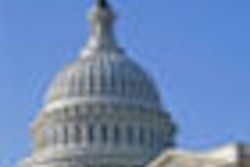
WASHINGTON (Reuters), Feb 26 - President Barack Obama and Republicans clashed frequently on Thursday at a summit on his stalled healthcare overhaul, battling over the size and cost of the proposal and moving no closer to a compromise agreement.
Obama told about 40 congressional leaders his comprehensive overhaul was "absolutely critical" to a sustained economic recovery, but Republicans said he should scrap the current plans and start over with a smaller approach.
"There are some fundamental differences between us that we cannot paper over," Jon Kyl, the No. 2 Senate Republican, told Obama, adding that his plan gave Washington too much power over the medical system and took it away from patients and doctors.
"We do not agree about the fundamental question of who should be in charge," Kyl said.
Obama hoped the daylong summit at Blair House, the presidential guest house across the street from the White House, would revive momentum in Congress for his faltering attempt to make healthcare more affordable and extend coverage to tens of millions of uninsured Americans.
"I think we're establishing that there are actually some areas of real agreement," Obama told reporters during a lunch break. "And we're starting to focus on what the real disagreements are."
Obama urged lawmakers to go beyond political theater and partisan finger-pointing, but the polite tone was interrupted several times by tense exchanges with Republicans, including his 2008 presidential foe John McCain.
When McCain questioned whether Obama had delivered on the political change he promised, Obama curtly reminded him: "We're not campaigning anymore. The election is over." McCain responded with a laugh: "I'm reminded of that every day."
Republican Sen. Lamar Alexander and Obama also clashed on whether Democratic plans would raise insurance premiums, with each interrupting the other to make their points.
The summit appeared to have little impact on Wall Street, where health insurer stocks fell slightly, but performed better than the broader U.S. market. Shares in Humana slipped 0.6%, Aetna fell 0.3%, and WellPoint rose 0.3%. The Morgan Stanley Healthcare Payor Index dropped 1.1%.
"The biggest threat originally was the specter of the public option and the president has taken it off the table," said Dave Shove, analyst for BMO Capital Markets. "I think that investors recognize that all the bad news about how reform might affect insurance companies is already behind us."
'Bankrupt the country'
The summit debate broke no new ground in the healthcare debate, with Republicans calling the bills too costly and saying they would mean more taxes, more regulations, and higher premiums for consumers.
"This 2,700-page bill will bankrupt our country," said House Republican leader John Boehner.
Republicans focused on promoting their own scaled-back approach to boost competition across state lines, create high-risk insurance pools, and curtail medical malpractice lawsuits.
Republicans stacked the massive Democratic bill on the table to show its size and said their opposition represented the will of a majority of Americans.
"We have to start by taking the current bill and putting it on the shelf and starting from a clean sheet of paper," Alexander said. "This is a car that can't be recalled and fixed."
Obama and his fellow Democrats made it clear they have no intention of starting over, but Obama hopes to win over wavering Democratic lawmakers and rally support among voters who have lost enthusiasm for the effort to reshape the $2.5 trillion U.S. healthcare industry.
The bills passed by the Democratic-controlled House and Senate late last year were designed to rein in costs, regulate insurers, and expand coverage to tens of millions of Americans.
But efforts to merge them and send a final version to Obama collapsed in January after Democrats lost their crucial 60th Senate vote in a special election in Massachusetts amid broad public dissatisfaction with the healthcare drive.
Republican and Democratic staffers treated the event like a political debate, frequently sending out statements disputing comments made at the summit.
Republican Rep. Mike Pence, who was not invited, told ABC the event was "starting to look like a waste of time. This is not good government; it's also bad TV."
Once the summit is over, Democrats will consider trying to ram a bill through Congress using a procedure called reconciliation that would bypass the need for Republican support. Republicans denounced the idea.
"You can say that this process has been used before, and that would be right. But it's never been used for anything like this," Alexander said, quoting Democratic Sen. Robert Byrd's description of the process as ramming the bill through like "a freight train."
Senate Democratic leader Harry Reid defended the procedure and noted Republicans had used it before "for major things" like tax cuts and reform of Medicare, the federal health program for the elderly.
The White House also has a scaled-back alternative plan it could push if a more comprehensive approach fails. It would extend coverage to about 15 million Americans rather than the 31 million envisioned by the larger plan.
By John Whitesides and Patricia Zengerle
Last Updated: 2010-02-25 16:11:40 -0400 (Reuters Health)
Copyright © 2010 Reuters Limited. All rights reserved. Republication or redistribution of Reuters content, including by framing or similar means, is expressly prohibited without the prior written consent of Reuters. Reuters shall not be liable for any errors or delays in the content, or for any actions taken in reliance thereon. Reuters and the Reuters sphere logo are registered trademarks and trademarks of the Reuters group of companies around the world.



















